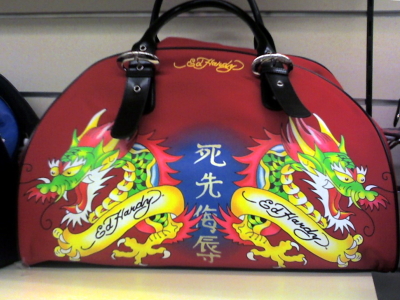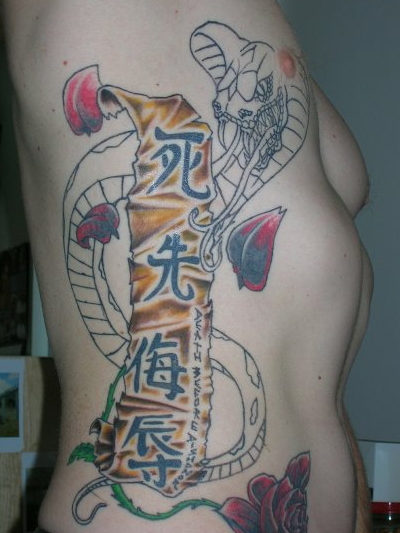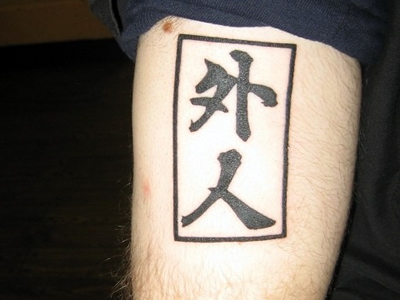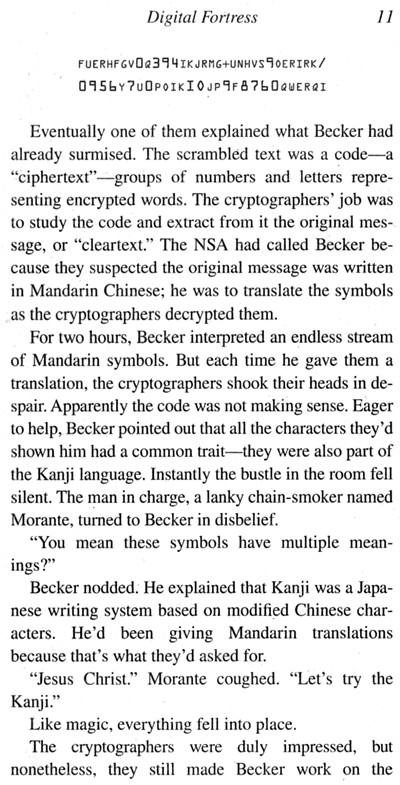
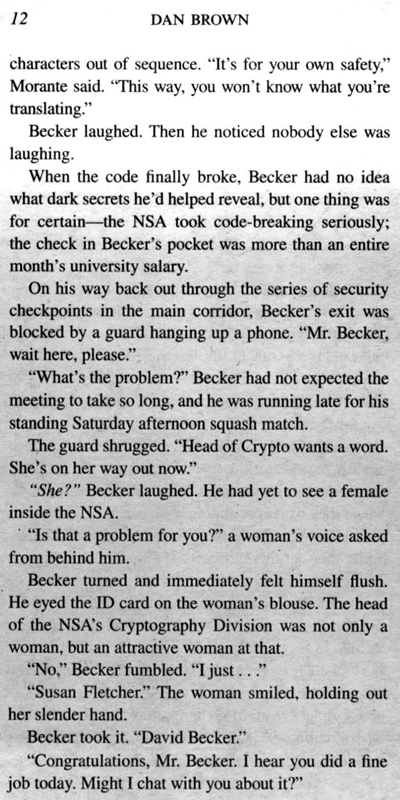
Linguaphiles in Livejournal have already pegged Dan Brown as an idiot.
Alan and I are annoyed with Dan Brown, especially considering he is interested in cryptography.
The excerpt is so painful and moronic quoting about "Mandarin symbols" and "Kanji language", where there is no such thing as "Mandarin symbols" or "Kanji language". Mandarin is a spoken oral dialect, and Kanji is part of Japanese writing system.
Alan also had this to say:
Apparently Dan Brown is just as ignorant as those tattoo yahoos. He thinks you can just "translate symbols" and have it make sense. Any code based on the translation of single characters from Chinese or Japanese to English, and then subjecting this to subsequent processing is bound to fail because of multiple meanings. (Sorry, Dan, but just picking the "Kanji" rather than the "Mandarin" meanings does not solve the problem.) Simply sending a coded message that included plaintext Chinese or Japanese would be such a stupid code because any translator could intercept and read it. And the topper is the assumption that someone could possibly translate something written in Chinese or Japanese out of sequence. Try to read any English text scrambled out of order! If it is to be possibly deciphered, first the message has to be put into proper order.

